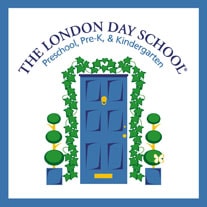Why is Pre-School so Important?
The London Day School vs. Daycare?
Many parents will ask us, so, what is the difference between The London Day School and a daycare center? The answer is simple. The only way we are the same is that we are here all day and we “Care!” The difference is also simple. We are focused on Early Childhood Education and Enrichment from the moment the first student enters our school in the morning, until the moment they leave at the end of their day.
A daycare center will enroll students from infants and up, and often the focus is on keeping a child busy while mom or dad head off to work. Our students may enroll for either a full, extended or half day and regardless of the days or hours they attend they are exposed to a full and exciting curriculum. You won’t find children watching a 2 hour video on a rainy or snowy day in our classrooms. Instead you might find that snow in one of our sensory tables where we are learning about freezing and melting or you will find us sharing books in our library or catching up on our Spanish fun in Language Lab.
Afternoon hours in a daycare setting are often left as unstructured time without educational activities. We believe that as long as a child is at LDS they should be engaged in something fun, exciting and educational. Playground time is always a part of our afternoon, but so is Science, Music, Spanish and Art. When the end of day approaches and mom or dad says it’s time to go” and we hear “I need one more minute,” or “why did you come so soon?” we know our job is well done.
A daycare center is set up to enroll 18-25 children in each classroom with student to teacher ratios that follow state requirements. Our focus is on students from age 2 and up who are really ready to engage in exciting, enriching exploration and learning. Our classes are purposely kept small with student to teacher ratios that exceed state requirements so that students can build a one on one relationship with our teachers. We take a scaffolding approach to learning and are very aware of the social, emotional and academic needs of each and every one of our students.
By having smaller class sizes we can challenge and stretch the abilities of even our littlest learner, but we can also nurture and care for the student who may have some separation anxiety, or needs just a little extra help learning their letters, or making a new friend. The experience a child has at The London Day School is everlasting and one of the reasons why we start our program when they are just ready to begin socializing, making friends, exploring new ideas, and learning to share their thoughts and wonder about the world. While there is always a need for quality infant daycare, we are excited to be able to offer our parents “the next step.” Preschool.
Excerpt from Parents.com
“There’s increasing evidence that children gain a lot from going to preschool,” says Parents advisor Kathleen McCartney, PhD, dean of Harvard Graduate School of Education, in Cambridge, Massachusetts. “At preschool, they become exposed to numbers, letters, and shapes. And, more important, they learn how to socialize — get along with other children, share, contribute to circle time.”
Statistics show that a majority of kids attend at least one year of preschool: According to the National Institute for Early Education Research (NIEER), more than two-thirds of 4-year-olds and more than 40 percent of 3-year-olds were enrolled in a preschool in 2005. “Children who attend high-quality preschool enter kindergarten with better pre-reading skills, richer vocabularies, and stronger basic math skills than those who do not,” says NIEER director W. Steven Barnett, PhD.
“Every child should have some sort of group experience before he starts kindergarten,” says Amy Flynn, director of New York City’s Bank Street Family Center. Music and gymnastics classes are great, but what preschools do that less formal classes don’t is teach kids how to be students. Your child will learn how to raise her hand, take turns, and share the teacher’s attention. What’s more, she’ll learn how to separate from Mommy, who often stays in a music or gym class. All of this makes for an easier transition to kindergarten. “Kindergarten teachers will tell you that the students who are ready to learn are those who come into school with good social and behavior-management skills,” Smith says.
What will my child learn?
In addition to strengthening socialization skills — how to compromise, be respectful of others, and problem-solve — preschool provides a place where your child can gain a sense of self, explore, play with her peers, and build confidence. “Kids in preschool discover that they are capable and can do things for themselves — from small tasks like pouring their own juice and helping set snack tables to tackling bigger issues like making decisions about how to spend their free time,” says Angela Capone, PhD, senior program manager at Southwest Human Development’s Arizona Institute for Childhood Development, in Phoenix. “Plus, 4- and 5-year-olds have begun asking some wonderful questions about the world around them — what happens to the water after the rain? Do birds play? Quality preschools help children find answers through exploration, experimentation, and conversation.”
But what about learning his ABCs?
“Young children can certainly learn letters and numbers, but to sit kids down and ‘teach’ them is the wrong way to do it,” says Smith. “They learn best through doing the kinds of activities they find interesting — story time, talking to their teachers about stars, playing with blocks.” To help kids learn language and strengthen pre-reading skills, for instance, teachers might play rhyming games and let kids tell stories.

